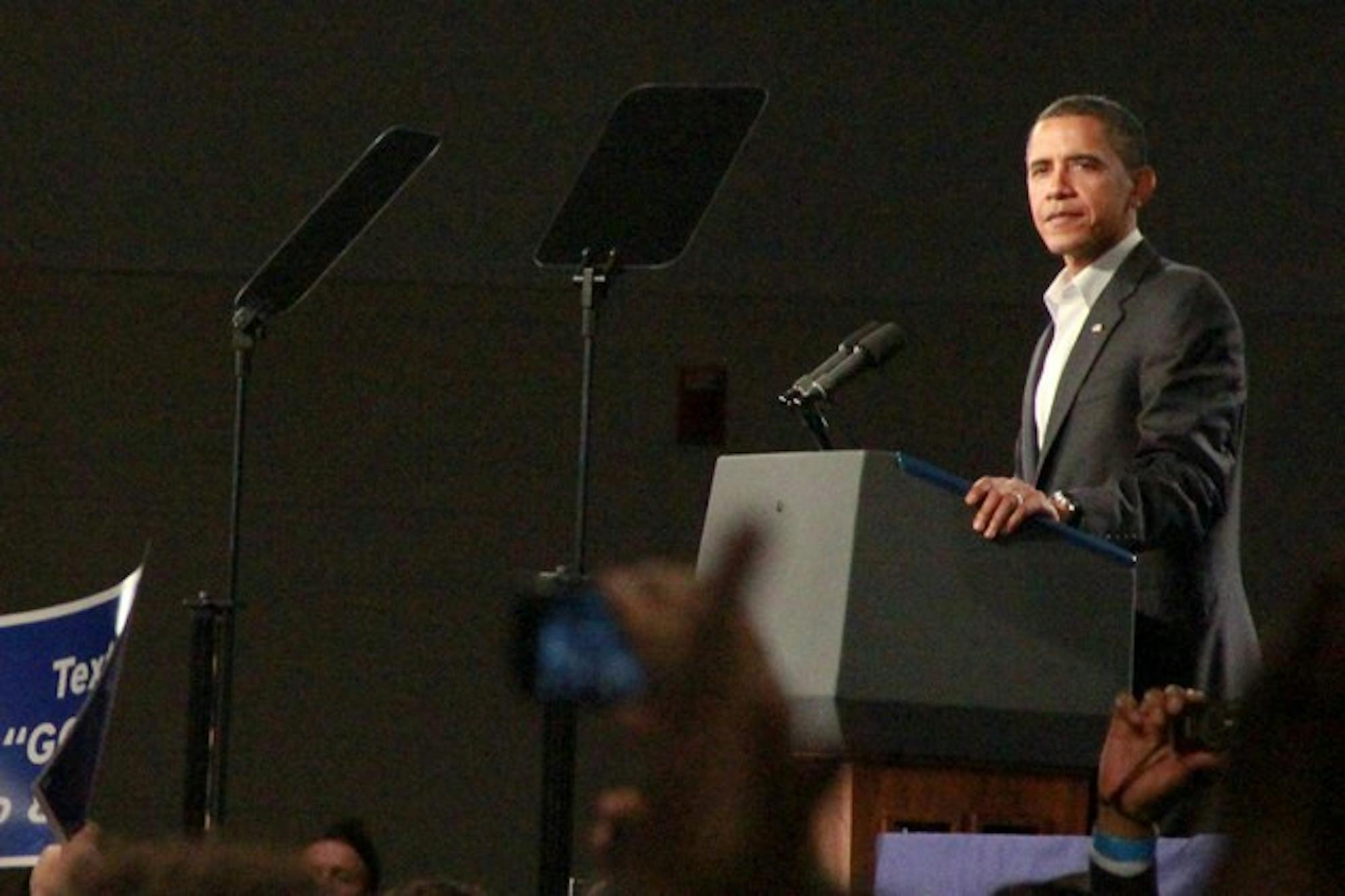"We'll fight for you if you fight AIDS," the group chanted while holding signs that read, "Keep the Promise" and "[$]50 Billion Towards Global AIDS Funding."
The group's interjection caught the attention of the president who responded to the students as they were escorted by security guards out of the Hynes Convention Center. Obama told them to compare the Republicans' agenda with the Democrats' agenda and said that Republicans would cut AIDS funding in the United States if they gain control of Congress.
Although some members of the crowd booed the students 13 of which were from Dartmouth and called them "haters," Obama acknowledged the display as positive.
"One of the great things about being a Democrat is that we like arguing with each other," Obama said.
The Dartmouth Coalition for Global Health, a group within the John Sloan Dickey Center for International Understanding, organized the protest with the Harvard College Global Health and AIDS Coalition as part of the Take a Number campaign, which aims to convince Obama to increase AIDS funding.
The 65 participating students hoped to bring Obama's attention to the 2008 campaign promise he made to allocate $50 billion to global AIDS relief efforts over five years and increase funding for the President's Emergency Plan for AIDS Relief by $1 billion per year, according to Cameron Nutt '11, who helped organize the attendance of the Dartmouth students.
Nutt said he is interested in bringing attention to AIDS relief funding because he has seen the effects of the disease firsthand while volunteering in Tanzania.
"This was not an anti-Obama protest, this was not a Tea Party protest, it was not an anti-Deval protest," Nutt said. "The idea was to hold him accountable for something we've seen with our own eyes and [what] we've read in reports from the fields is literally a matter of life or death for thousands of patients in our own country and around the world."
One of the leaders of the Dartmouth group, Liana Chase '11, said that Obama's response to the protest was expected. Although global AIDS funding has increased, the amount has gone up by only $100 million this year, a tenth of the billion-dollar promise and not enough to compensate for inflation, according to Chase.
"Even though there have been small gains and small additions to the budget for HIV/AIDS funding, programs are actually being cut and people who were receiving treatment are actually no longer receiving treatment, so that was kind of a weak response," Chase said.
The Harvard group had been planning Saturday's protest "for some time," after learning that Obama would be in Boston, Nutt said. The two groups met on Friday evening to discuss the best way to convey their message during the rally without demonizing the president, Chase said. They chose a moment during Obama's speech when he paused, allowing the group to be easily heard by the president.
"The political effects of the whole situation were really well thought-out in advance," Chase said. "We all decided that our message was to the president. It wasn't really for the people around us, so we were going to turn a blind eye to the rest of the crowd and try to make sure that Obama got the message that we support this cause."
Similar demonstrations have occurred at Obama's other appearances after a newly released government budget for the 2011 fiscal year showed an unchanged rate in global AIDS spending, Nutt said. In the last week of September, a patient advocacy group protested at an Obama fundraiser in New York City. Two weeks ago, Harvard students protested at a fundraiser in Philadelphia, according to Nutt.
Nutt said his group and others hope to take advantage of the midterm election environment to further press the president to take action.
"[The protest] put the issue on the national media radar for a blip of time," Nutt said. "It was very controversial, but the fact of the matter is he heard us and he knows there's growing discontent over this broken promise. This is not the first time and it won't be the last time that people bring their criticism directly to him in a public setting where he's vulnerable to criticism."




